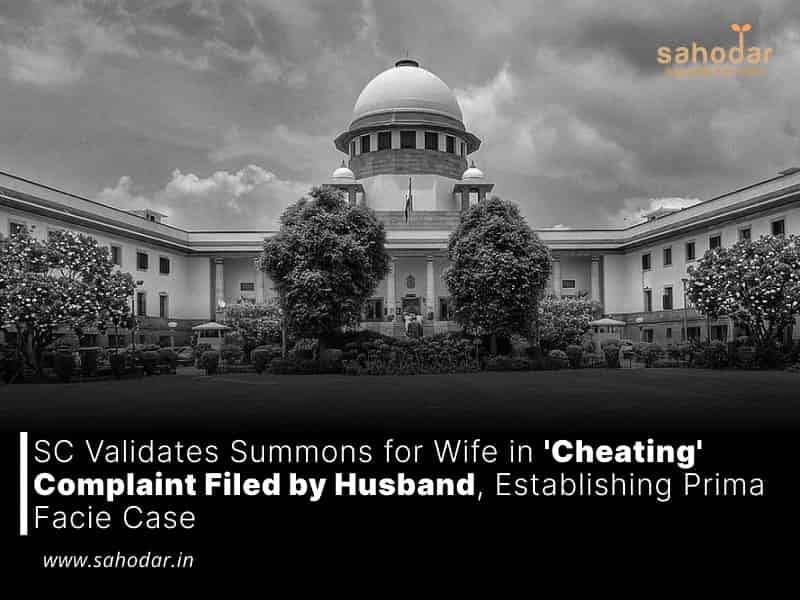The Supreme Court affirmed the summoning of a wife in a ‘cheating’ complaint initiated by her husband.
The Court granted the husband’s appeal challenging the Madhya Pradesh High Court’s decision, which upheld the Sessions Court’s ruling to annul the summoning order issued by the Trial Court under Section 420 of the Indian Penal Code (IPC) against the wife and under Section 420 read with Section 120-B IPC against her family members.
The two-Judge Bench of Justice C.T. Ravikumar and Justice Rajesh Bindal noted, “The Sessions Judge failed to appreciate the fact that certain events had taken place thereafter, namely, apprising the appellant about the decree of divorce having been passed and showing the forged copy thereof to him on mobile. The Learned Sessions Court has considered the revision against the summoning order as if after trial the findings of conviction or acquittal was to be recorded. It was a preliminary stage of summoning.”
The Bench emphasized that before summoning an accused, there must be a prima facie case established based on the allegations in the complaint and the evidence presented by the complainant prior to the summons.
Background Information:
As per the complainant husband, the marriage occurred in 2018, yet the respondent wife was already married and had not obtained a divorce from her first husband. Upon discovering this, the appellant husband filed a petition under Section 11 of the Hindu Marriage Act, 1955 (HMA) with the Principal Judge, Family Court, seeking annulment of their marriage. Subsequently, he lodged a complaint against the respondent and her family members. The Magistrate, in response, directed the initiation of legal proceedings against the respondent for offenses under Sections 494 and 420 of the Indian Penal Code (IPC), as well as against her family members under Section 420 read with Section 120-B IPC.
The accused individuals (respondents) contested this order by filing a Revision Petition before the Additional Sessions Judge, leading to a partial allowance by the Sessions Court. Consequently, the Magistrate’s order was annulled regarding the cognizance of the offense under Section 420 IPC against the respondent and for the offense under Section 420 read with Section 120-B IPC against the family members. The appellant subsequently contested this decision by the Sessions Court before the High Court, which upheld the ruling. Therefore, the appellant appealed to the Apex Court.
The Supreme Court in the above regard observed, “In a challenge by the appellant to the aforesaid order in the quashing petition, the High Court dismissed the petition without recording any reasons. … Considering the material on record, in our opinion the approach of the Learned Sessions Court and the High Court in setting aside the summoning order against the accused persons i.e. respondent nos.1,2 and 3 under Section 420 read with Section 120-B IPC is not legally sustainable.”
The Court determined that there was sufficient evidence to warrant issuing legal proceedings against the respondents, compelling them to stand trial for the offenses under Sections 420 and 120B IPC for which they were summoned.
“The Trial Court shall decide the case on its own merits on the basis of the evidence led by the parties”, it directed.
Thus, the Court granted the appeal, overturned the rulings of both the High Court and Sessions Court, and reinstated the Magistrate’s order.
Your Voice Matters: Helpline for Men Sahodar
If you need legal help in India, please give a missed call to +91-9811850498 or leave your query on WhatsApp at the same number.

